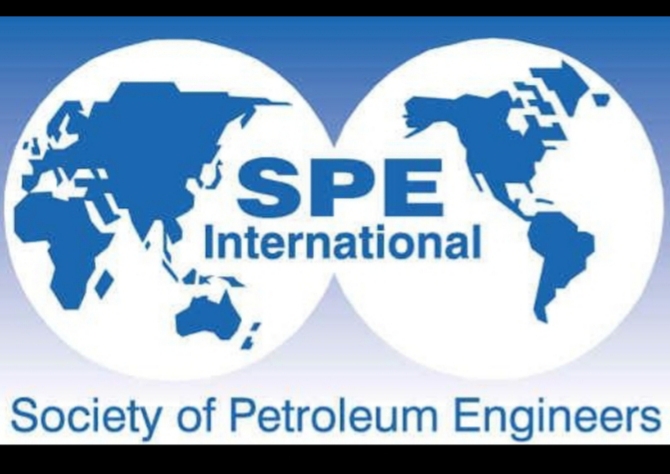
Fresh economic recession is imminent in Nigeria before December, apex global body of petroleum engineers and oil industry’s stakeholders, Society of Petroleum Engineers (SPE), has warned.
Chairman, SPE Nigeria Council, Engineer Joe Nwakwue, who gave this warning on the sideline of a press conference to herald the 2020 SPE Nigeria Energy Industry Transformation Summit (NEITS) in Lagos, bemoaned the country’s heavy dependence on fuel imports, an act, he said, is worsening foreign exchange liquidity challenge and serving as a huge burden for the economy.

Noting that his group would, at its forthcoming summit, proffer common solution to this challenge and other common challenges be-develing the industry, Nwakwue declared that fuel importation due to gross inefficiency of refineries is the biggest drainer of exhange rate in Nigeria.
“Nigeria spends a lot of forex daily to import the products and this is not sustainable. It is a spending pattern that has become a huge burden for our already weak economy.
“This, couple with the low prices of crude oil at the international market, which is a problem for all oil producers, has now made economic recession imminent.
“If the price keeps being at the low region in the next three to four months, we could slide back into another recession,” he declared.
“Every economy is suffering not only us. While others have buffers or ability to borrow, we do not have the buffers, and we have jept borrowing in the face of no or little savings.”
Saying that the SPE NEITS summit themed; Changing Global Energy Landscape: Strategies for Industry sustainability,” is “put together to discuss this challenge and othervcommin problems and find common solutions to the problems,” the Chairman , SPE Nigeria Council, said: “hopefully, the Petroleum Industry Bill (PIB) wil be passed before the end of this year and we as a group shall continue to provide support for this.”
He inquired; “Why can’t Nigeria ckmee up with a policy that in the next five years we will no more be exporting crude (oil) but only refined products?”
This, he continued, is achievable. “Now, think of the values we will be adding to our econony as a result of this policy.”
In view of the prevailing business environment in the oil industry, the exploration landscape for Nigeria, Nwakwue said, “looks gloomy post COVID-19.
“The outlook is no doubt gloomy given the relatively low forecasted oil prices and prevailing high unit costs in Nigeria. But things could fundamentally change if we passed a fiscally competitive PIB, or if carried out a bid round with most of the prospective blocks in the basket, or if we removed some of the bottlenecks to investment flows, among others.”
Saying that the potentials of domestic refining of hydrocarbon for sustainable development in Nigeria are huge, the petroleum engineer, stated that the market is there with 11 million registered vehicles and a significant refined product demand for power generation and industrial use, “the feedstock is here, the technology is basic.
“So what we lack is the plant and capacity to run them profitably. Also, note that Africa also presents a huge market for Nigerian refined products especially with ACFTA. In a sense, we are in the river and almost blind with soap in our eyes! A classic case of policy failure.”
Insisting that Nigeria has the potentials to keep being an attractive investment destination for African and international companies, the SPE boss said; “We used to be a choice destination for investment but I am afraid we have lost that place over time. Key considerations for investors are resources endowment/density, fiscal terms, ease of doing business etc We have slipped by most measures but there is scope for rebound if we get the PIB right.
On marginal field bids and development, Nwakwue said; “he current market conditions will no doubt affect valuation of prospects here just like everywhere else.
“Its however important to remember that it’s in times like this that valuable assets are picked up and developed on the cheap and monetized when prices rebound. Investment in our industry is long term and we make investments decisions with a fairly long time view. No doubt, the current conditions will not support huge pre-production payouts like signature bonuses.”
On the growing demand for clean and renewable energies by consumers, governments and NGOs, the Nigerian oil companies (NOCs), and the International Oil Companies (IOCs) can position themselves, according to him, for a sustainable future
“It is important to recognize that we are in the early days of a transition, moving away from “dirty” fuels to “cleaner” fuels. Post covid-19, energy demand forecasts are still robust and would require significant capacity adds not just in fossils but in renewables.
“The challenge before us are therefore how to find and develop these resources in a safe, cost effective and environmentally sustainable manner. We have seen the majors and NOCs positioning and diversifying their businesses in ways that will enable them continue to energize the world through a cocktail of energy solutions not just limiting themselves to fossil fuels.
“We have also seen significant investments and technology developments in carbon capture and sequestering to help mitigate the impact of CO2 emissions. All of these require technology and that’s where SPE comes in.”
“SPE Nigeria recognizes the ongoing energy transition and the challenges it has thrown up. We also feel that as industry experts, we are better positioned to lead the discussion on what the industry and indeed government should be doing to ensure sustainability of not just our industry, but the entire economic system which is anchored on energy use. So we feel an obligation to help figure out the way forward.”





















